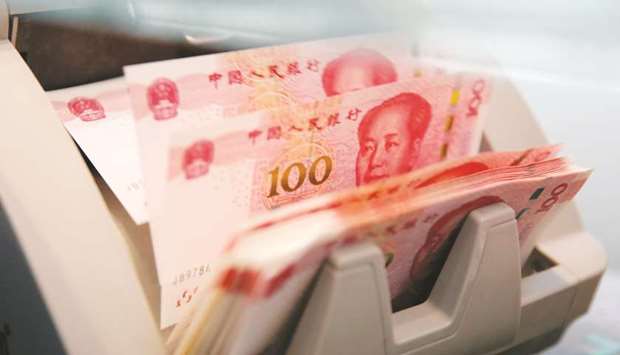China’s central bank unexpectedly added liquidity to the banking system Friday to help lenders through the tax season, a move that analysts saw as a sign that larger-scale stimulus is unlikely in the near term.
The People’s Bank of China offered 200bn yuan ($29bn) of one-year loans to banks on Friday. It kept the interest rate unchanged at 3.25%, showing restraint in monetary policy after this week’s worse-than-expected economic data. Liquidity in the banking system is at a “reasonable, sufficient” level as the operation offsets companies’ need for funding to pay tax, the PBoC said in a statement.
The central bank also released a further 40bn yuan on the day, as a previously-announced reduction to banks’ reserve ratios came into effect, taking the total injection to 240bn yuan. The authorities have refrained from adding cash via open-market operations for 15 straight days, citing ample liquidity.
The moderate injection indicates the central bank remains committed to restraint in monetary easing, even with the economy slowing further in October on weak investment and demand. Policy makers this week loosened the capital requirements for investing in infrastructure projects, another incremental measure aimed at propping up output.
Earlier this month, the PBoC reduced the cost of 1-year funds to banks for the first time since 2016, seeking to calm markets nervous amid a plunge in government bonds and a slowing economy.
“It’s another operation of marginal easing, as the liquidity unleashed from the reserve ratio cut might not be enough to cover the funding demand during tax payments,” said Peiqian Liu, China economist at Natwest Markets Plc in Singapore.
Liu also pointed to a pattern that the PBoC has tended to conduct medium-term lending operations around the middle of the month since July – ahead of the announcement of the loan prime rate, the de facto benchmark interest rate for banks’ new loans. The mid-month operation could become “regular” in the future, as the PBoC uses it as a tool to push the loan prime rate lower, she said.
The yield on China’s 10-year government bonds dropped 1 basis point to 3.24%, while the Shanghai Composite Index closed 0.6% lower.
“I don’t think the central bank wants to send any strong signal,” said Stephen Chiu, Asia FX and rates analyst at Bloomberg Intelligence. “They always have an eye on containing financial risks, so will be super cautious when doing easing.”

Chinese 100 yuan banknotes are seen in a counting machine at a branch of a commercial bank in Beijing (file). The People’s Bank of China offered 200bn yuan ($29bn) of one-year loans to banks yesterday. It kept the interest rate unchanged at 3.25%, showing restraint in monetary policy after this week’s worse-than-expected economic data.
